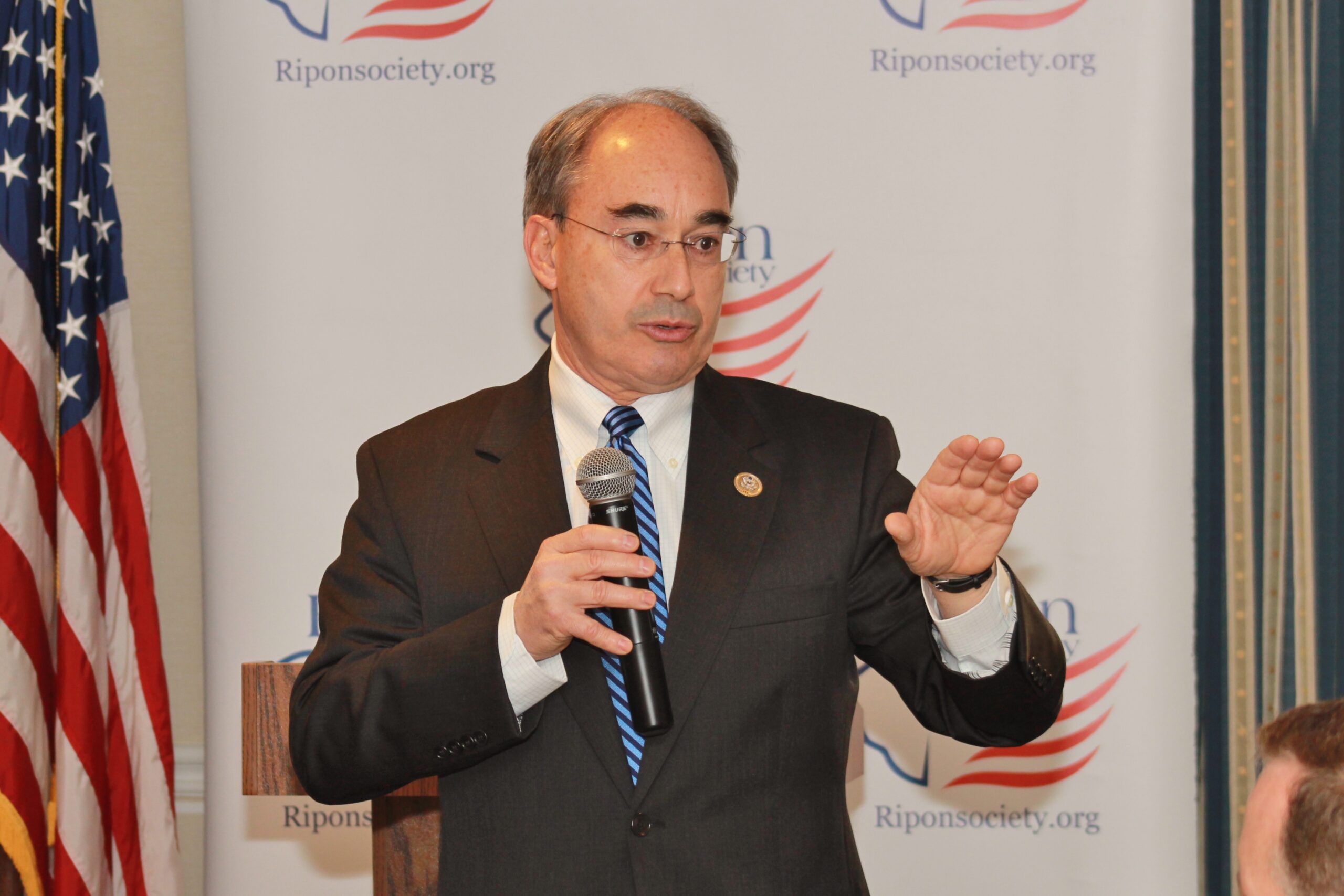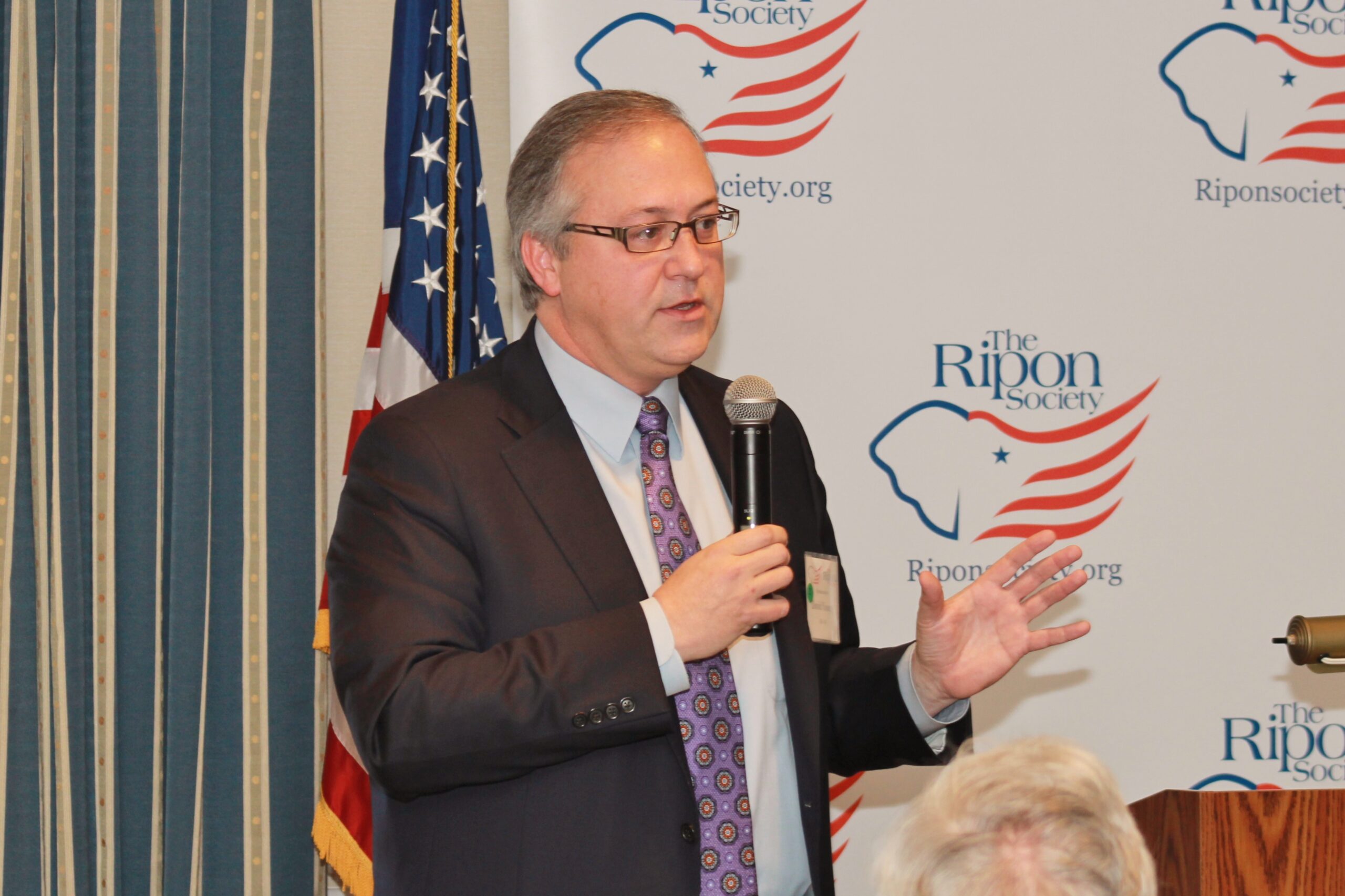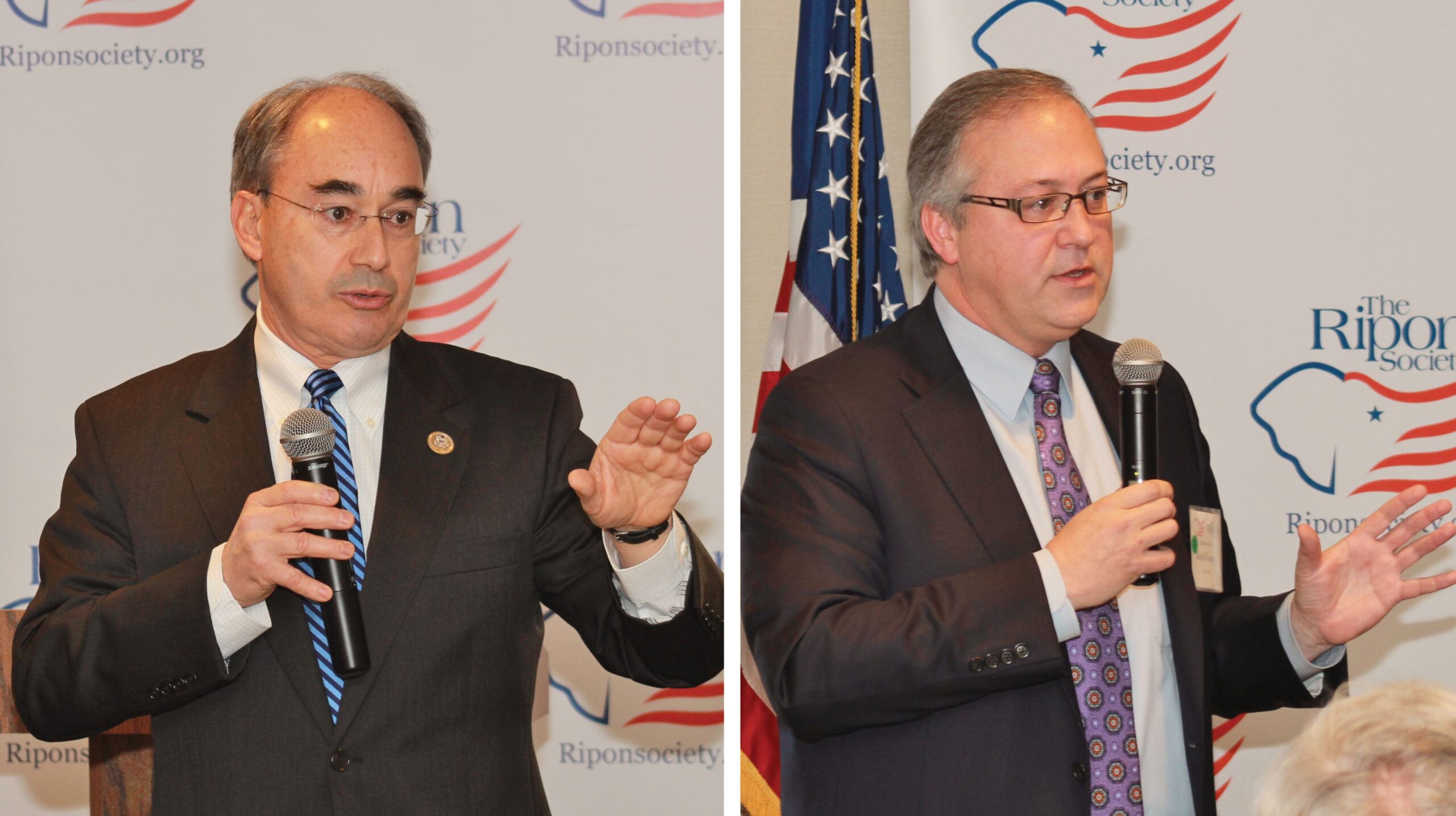Poliquin & Young take a moment to reflect on last year’s campaign
WASHINGTON, DC – The Ripon Society held a breakfast discussion yesterday morning with U.S. Reps. Bruce Poliquin and David Young, two Members of the House of Representatives who not only represent swing districts, but who beat the odds to win their respective campaigns this past year.
Poliquin represents the 2nd Congressional District of Maine. During last year’s campaign, he found himself facing off against the same challenger he narrowly defeated in 2014, as well as 10 well-financed special interest groups from outside the state which had him directly in their sights.
“There was $17 million spent in our congressional race,” he stated. “There were 334 television ads per day for two and a half months. Not for two weeks – for two and a half months. You know who this was toughest on? My parents. My Mom is 88. She uses a walker and she’s really tough. And my Dad is 86. They said, ‘Bruce!’ And I said, ‘Just turn it off.’ Most of the people in Maine did the same thing. In fact, they got so turned off, they just tuned it out.”
Despite all these ads and outside money, Poliquin – who had a successful career in business and job creation and served as Maine State Treasurer before his election to the House – pointed to three main reasons he ultimately won with 55 percent of the vote last fall.

The first reason was hard work. “The people in our District said, ‘This guy is a French Canadian,” Poliquin observed. “He’s three generations here. He’s had a different life experience. But he’s here to work for us. We see him everywhere, and he takes it seriously.’ And they’re right. I’m 63 and I’ve had a career. It’s been great – I was blessed with that. I’m doing this now because I want to help. I want to give back. And I think people in our District realize that.”
According to Poliquin, the second reason he won is that he stayed focused on his own campaign instead of other races on the ballot. “The people in the 2nd District didn’t elect me to get involved in a food fight,” he stated. “They elected me to work on issues like jobs and lower energy prices and border security. So we stayed on message, stayed focused on the District, and stayed out of the presidential race.”
Poliquin also said that fundraising was a key to his victory. “We were outspent by $3 million. Had we not aggressively and diligently raised the funds we needed to get out message out, we would have been drowned out. We were the chief target of Ms. Pelosi’s Super PAC and everybody else piled on.”
Poliquin concluded his remarks by talking about his District and other swing Districts around America, and why they are so critical to holding the majority in the U.S. House.
“If you look at the math,” he said, “there are about 25 of these districts around the country that are swing districts. If you are a Democrat and you live in Manhattan, you’re going to win. If you’re a Republican and you live in rural Alabama, you’re going to win. But if you’re in David’s District in Iowa or my District in Maine… if we win these seats we’re in the majority. If we lose these seats, we’re in the minority. That’s why these Districts are so valuable and why we were targeted. That’s also why I’m so grateful to be here today, and am ready to get back to work.”
Young – who represents the 3rd District of Iowa – faced a challenge similar to Poliquin at the outset of last year’s campaign as national political analysts viewed the race as a toss-up. However, like Poliquin, Young defied expectations and ultimately won by more than 10 percentage points.
In his remarks, the Iowa lawmaker attributed his success to his basic political approach. It is an approach, he said, that places a premium on being accessible and listening to the people he represents.

“My pledge, which I fulfilled, was to go to every county every month and meet with everyone we could,” he recounted. “I’m a Republican, but I tell people that I represent everybody in the District and I wanted to talk to everybody in the District. So whether it was faith leaders or the LGBT community or unions or the Chamber of Commerce, I was there and had a dialogue. A lot of the time people just wanted to be heard, because they don’t feel like they have anybody’s ear. So it was – and continues to be – very, very important to make sure that you engage and listen to them.”
“The American people felt like they were being taken for granted. They felt that promises were being made, but nothing was getting done. I was very careful not to do this. I simply told people that: 1) ‘I’m going to be in your communities and you’re going to have access to me.’ 2) ‘I’ll tell you what I believe on the issues and where I stand;’ and, 3) ‘I’ll work my tail off to get things done. And while I can’t always promise an outcome, I can promise a process for you and a relationship with me.’ That seemed to resonate very well in the district.”
Young concluded his remarks by talking briefly about the American people and their desire for Republicans and Democrats to finally come together to solve the pressing problems facing our country.
“I think that they’re going to be looking for some honorable compromises,” the second term Representative stated. “Compromise doesn’t have to be a dirty word. It may be to some people, but it doesn’t mean you have to give up your principles. Three yards and a cloud of dust will get you down the field. You don’t always have to throw the Hail Mary into the end zone. Just get there. Show progress. That’s what’s important – that we show progress, and show to the American people that Washington is finally listening to their voices and working on their behalf this year.”
The Ripon Society is a public policy organization that was founded in 1962 and takes its name from the town where the Republican Party was born in 1854 – Ripon, Wisconsin. One of the main goals of The Ripon Society is to promote the ideas and principles that have made America great and contributed to the GOP’s success. These ideas include keeping our nation secure, keeping taxes low and having a federal government that is smaller, smarter and more accountable to the people.




